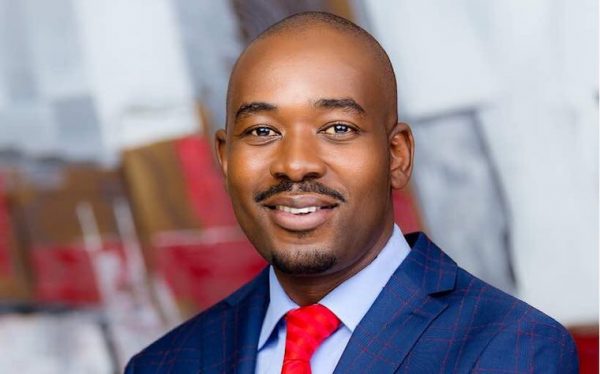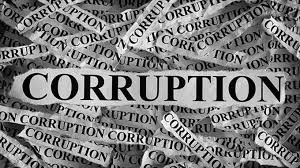
BY NQOBANI NDLOVU
Zimbabwe is in perpetual election mode because of disputed poll outcomes, analysts have said, as political parties start to run visible campaigns ahead of the 2023 contest.
Both the ruling Zanu PF party and the mainstream opposition MDC Alliance have launched mobilisation campaigns as they seek to upstage each other in what could be a hotly contested election.
A Zanu PF faction loyal to President Emmerson Mnangagwa has been organising structures to endorse him as the party’s presidential election candidate amid growing factionalism in the ruling party.
Blessing Vava, Crisis in Zimbabwe Coalition director, said the Zanu PF factional fights have thrust the country into election mode.
“Election results in Zimbabwe have always been contested and have largely failed the credibility test,” Vava said.
“So, Zanu PF is continuously on the ground through orthodox and unorthodox means to influence electoral processes.
“Equally so, the opposition has been reactive and hence creating the electioneering vicious cycle.
- Chamisa under fire over US$120K donation
- Mavhunga puts DeMbare into Chibuku quarterfinals
- Pension funds bet on Cabora Bassa oilfields
- Councils defy govt fire tender directive
Keep Reading
“The factional fights within Zanu PF have also plunged the country into a perpetual election mode.
“So, even internal party processes that take place after each and every election create another cycle of electioneering within political parties.”
During the late former president Robert Mugabe’s last days in power, Cabinet ministers and other government officials would spend time attending Zanu PF youth rallies that were ostensibly meant to prop up a faction loyal to the then first lady, Grace Mugabe.
At one of the campaign events named youth interface rallies, Mnangagwa was allegedly poisoned.
Mugabe also used one of the rallies to announce his intention to fire Mnangagwa, a threat he carried out, but incidentally sparked a chain reaction of events leading to his ouster in November 2017.
Bulawayo-based commentator Effie Ncube said the contested nature of the country’s election results often meant the fights went on continuously through other platforms until the next election.
Under normal circumstances and in “normal countries”, once an election is held, the nation moves together and rallies behind those who have been elected.
“The focus shifts away from election to governance, from the ballot box to the State House, parliament and city halls
“But Zimbabwe is not a normal society, where democratic rules are adhered to,” Ncube argued.
“From election to another election, Zanu PF pays lip service to the bread and butter priorities of the poor, but focuses on trying to destroy the opposition.
“In such a situation, you can’t have a self-respecting opposition party being loyal to an outcome of a rigged election.
“In the circumstances, very little attention is placed on collectively dealing with pressing economic and social challenges.”
Zanu PF has been accused of dining with the Douglas Mwonzora-led MDC-T in the fight for the heart and soul of the MDC Alliance led by Nelson Chamisa allegedly to “destroy” the opposition.
Mwonzora recently laid claim to the MDC Alliance name.
“It is because our politics is too contested.
“The reason why it is so contested may be due to issues like unemployment, which has led to the rise of political entrepreneurs of all types and kinds.
“People are investing time with the hope of earning a living out of politics,” South Africa-based scholar Khanyile Mlotshwa said as he tried to explain why the country was always in election mode.
“This divides the nation and all these political entrepreneurs seem to be pushing diverging and divergent visions of what should happen.
“If they were competing or campaigning through service delivery, maybe it would have been better.
“But they are competing through empty rhetoric, sometimes divisive.”
A new political culture that puts emphasis on service is needed to ensure nation building and the economy does not suffer, analysts said.
Vava said civic society had a huge role to play in resisting manipulation and doing away with polarisation.
“There is a need to do away with political polarisation that has largely worked against efforts towards nation building,” he said.
“The above challenge is a call for CSOs [civic society organisations] to mobilise citizens to coalesce towards nation building and ultimately a better Zimbabwe for all.
“Citizens must be united for a common cause and this certainly means coming together regardless of political or religious beliefs.”
Ncube added: “Also, free and fair elections and a governing party that adheres to democratic norms and standards will bring the people together and minimise the over-focus on elections.”
Independent election observer missions released a number of recommendations after the 2018 harmonised elections, but there has been little movement towards implementation to ensure the 2023 elections pass the legitimacy test.
Economic commentator Stevenson Dhlamini said the economy had suffered too much over the years owing to the country’s toxic politics as he urged business to invest in political risk assessment strategies ahead of the next elections.
“As we move towards elections, markets will react,” Dlamini said.
“Business needs to invest in political risk assessment. It needs to place a finger on the political pulse of the country and not base their long term strategies on the prevailing political environment, but it should invest a lot in actuarial services to anticipate any changes of the political risk in our economy.
“Otherwise, we can never hedge away the political risk, especially in a country that is characterised by high political risks like our country
“Business will do better by adapting a model of anticipating the political shocks that may occur and not base their long term strategies on the pre-election excitement and policy initiatives.”










